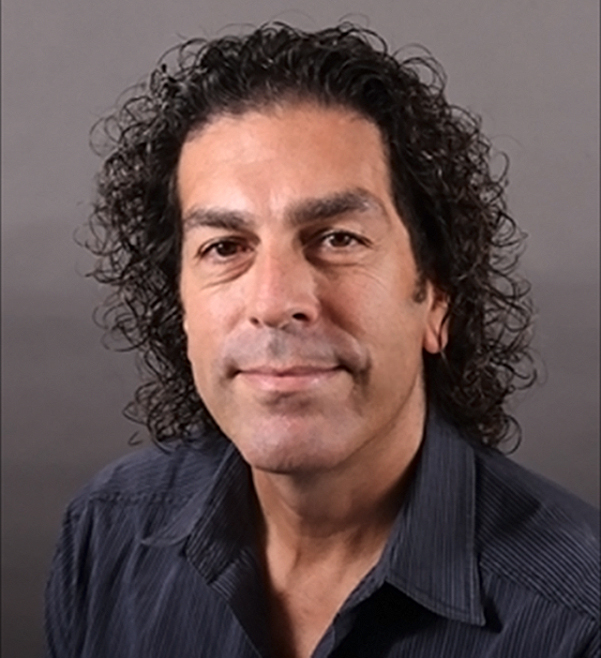Faculty Profiles: Panagiotis Liaropoulos

Panagiotis Liaropoulos
In July, associate professor of composition Panagiotis Liaropoulos left Boston to begin his work as a Fulbright Fellow in the Small Cyclades, a group of islands in the Aegean Sea southeast of the Greek mainland. Liaropoulos has made his home in America for more than two decades. But he continues to mine the music of Greece, his homeland, for inspiration in his own compositions.
His Fulbright work aims to preserve a very specific variety of traditional Greek music. The project will include making field recordings and transcriptions of local performers playing folk music and instruments unique to the Cyclades as well teaching at the National and Kapodistrian University of Athens (usually abbreviated to University of Athens), and doing research and creating a cultural archive at the university.
“In Greece, there has been no organized effort to preserve these musical traditions,” Liaropoulos says. “There is no state archive where someone can go to hear recordings or see transcriptions. I am hoping that the archive I am helpng to establish at the university will grow and that others will add to it.”
Time is of the essence for the preservation work as a number of the performers Liaropoulos hopes to record are elderly. “The older generation of musicians is dying off,” Liaropoulos says. “When they pass away, we lose what they did. I plan to make field recordings of three generations: people in their eighties, sixties, and forties. But I am mostly interested in the stylistic aspects of the older ways of playing the music. The older two groups of musicians carry all the nuances and tradition as it used to be.” Liaropoulos will also make videos of the dances associated with the music of the Small Cyclades and chronicle information about the dominant instruments used. Those instruments include violin, a form of the lute, percussion instruments such as the santur, and others in accompanying singers and dancers.
Liaropoulos grew up in Athens and began visiting the remote Cyclades Islands in his youth. “I’ve been going there since I was 17,” he says. “It’s eight to nine hours by boat to the islands. When I started going there, there were no ports. It wasn’t until the late 1980s that ports were built. Before that, the ferry would pull in and you’d have to jump to a smaller boat to get to the shore. So not many tourists went there. That’s one reason why the old way of life, the music, and the food on these islands are still present. I am interested in the whole culture, not just the music.”
In addition to his Fulbright work this fall, Liaropoulos will also focus on his own compositional goals. His catalog includes works for solo instruments, chamber ensembles, chorus, and orchestra works such as a flute concerto and piece titled Ode: Moments in the Life of Orpheus. He has also undertaken a new challenge.
“I’m composing a one-act opera,” he says. “I’ve been working on it for several months and it’s the most challenging thing I’ve ever done. It was commissioned by the Greek National Opera with an English libretto written by a Greek dramatist. I plan to finish it by the end of this year.” The opera will have 12 scenes and a running time of about an hour and 15 minutes. Liaropoulos anticipates that the premiere will take place in 2019 and is planning to present a concertante or partially staged version of his opera in Boston.
After completing his university studies in Athens, Liaropoulos was awarded a scholarship from the Fulbright Foundation in 1997 to study at Boston University where, he earned his doctorate in composition in 2001. “I studied with Lukas Foss and [Greek composer] Theodore Antoniou,” Liaropoulos says. “I came especially to study with Antoniou. He was a great influence regarding my approach to tradition. He stressed that music should somehow represent your national identity. Not in a strictly nationalistic way, but through seeking out resources in the music of your motherland in a creative way.”
Although he is a bit reluctant to talk about his own music, Liaropoulos characterizes what he writes as contemporary classical music, but his interest in traditional Greek folk and Byzantine music clearly comes through. “The Greek folk tradition is very related to the Byzantine tradition; monophony, the modes,” he says. “There is cross-fertilization between the two styles. Although the idiom I write in is more contemporary, one can still find the influence from both traditions in my music. It’s a meeting of the Western and Eastern traditions.”
Liaropoulos joined the Berklee faculty in 2010 and teaches core music courses including tonal harmony and counterpoint, in addition to upper-semester music theory classes and directed composition studies. He is also sharing the influence of his Greek homeland with his students.
For the past four years, with the support of the composition department and the writing division, Liaropoulos has taken a group of directed-study students to Greece in June where they concentrate on writing a string quartet.
“I have composition students, film scoring majors, and other students who want to do this,” he says. “For most of them, it is the first major work they will write that is not related to a class project. They work on composing their string quartet in Athens and then we all go to the Cyclades island of Amorgos where they continue writing. During the last week of the program, we do a workshop with a string quartet. The highlight is a concert of all the pieces held on the last day. The participants get to use both the piece and a recorded performance of it in their portfolios. It’s my hope that spending a month in Greece will be life-changing for these students.”



